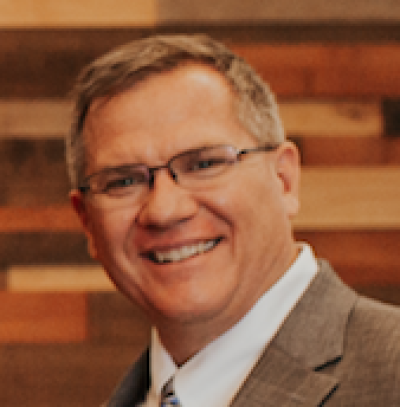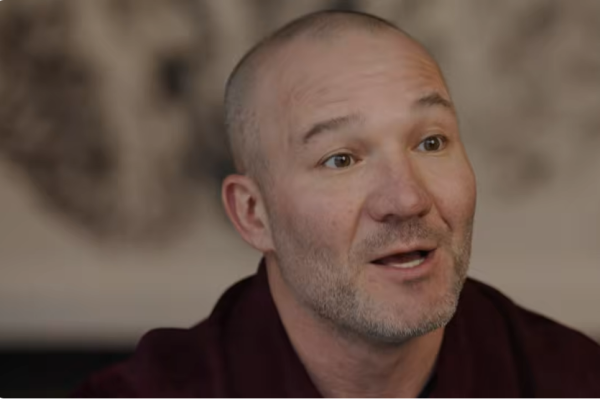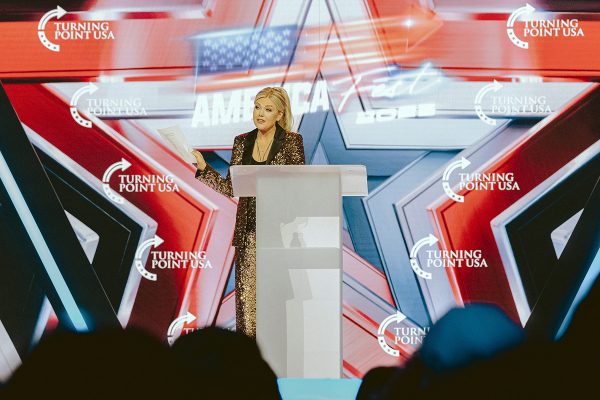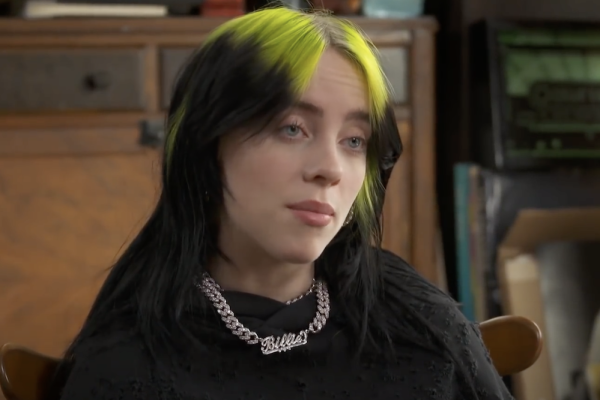Keeping faith while growing up evangelical (part 1)

Editor's Note: This is the first of a two-part op-ed from an evangelical who kept his faith in response to evangelical-turned-atheist's Luke Douglas' op-ed, "I Lost My Faith in a Chick-fil-a." The second part of the op-ed series can beread here.
O God, you have taught me from my youth and I still declare your wondrous deeds. –Psalm 71.17
I was raised in the Christian faith within the evangelical church. I am still a Christian and I am still an evangelical. I have read with interest, and sadness, of many who have a similar background growing up but who, for various reasons, no longer remain Christian. The narrative usually follows a common path. The simplistic faith of one’s youth is jettisoned under the pressure of intellectual challenges. This opens up new intellectual vistas and a new worldview—many times, atheism—is embraced. This “de-conversion” process has been analyzed by Scot McKnight and Hauna Ondrey in chapter one of their book Finding Faith, Losing Faith: Stories of Conversion and Apostasy.
A few months ago the Christian Post did a series of articles on “Leaving Christianity” which discussed why many Americans are rejecting the faith they grew up with. The first installment was written by Luke Douglas--I Lost My Faith in a Chik-fil-a. Douglas narrates his experience of growing up in an evangelical context where he was home-schooled and was taught a curriculum “centered on Creation Science.” In another narration of his past, found on a Humanist website, Douglas fill out the details of his pilgrimage.
“In 2008 I traveled to California to volunteer for the Proposition 8 campaign, which amended the state constitution to define marriage as being between one man and one woman. It passed. When I was seventeen, I had made the rounds in conservative circles and started getting invited to speak at rallies and conferences as a sort of rising star for the new Tea Party movement that was sweeping the nation. They loved me because they loved a token young person who gave them hope for the next generation. At eighteen I moved to northern Virginia for my first full-time job at a consulting firm where I raised money for major Republican organizations and campaigns. At nineteen I earned my bachelor’s degree and went to a conservative Christian law school on a full-ride scholarship. At twenty I was working in Washington DC, for a fundamentalist legal defense and lobbying organization.”
Then, in 2014, while at law school, Douglas watches the debate between Ken Ham—his “childhood icon”—and Bill Nye. He saw Ken Ham “embarrassingly destroyed before my very eyes.” With his legal training giving him the ability “to argue both sides of a case” he begins to examine other viewpoints outside of Christianity, focusing on philosophy, science and history. In 2016—at the age of 23—this leads to the final break. In a Chik-fil-a, while reading the philosopher Baruch Spinoza, he breaks down in tears, sheds his Christian belief, and finally admits to himself that he is “an atheist, a humanist, and a progressive.”
Luke Douglas’ Journey and Mine: Comparisons and Contrasts
In reading Luke Douglas’ narrative of his life-story (so far), I find myself reflecting on my life-story—its similarities and differences. I, too, was raised in evangelical churches. When I was in sixth or seventh grade, Josh McDowell came to our church, and I asked my parents to buy his book Evidence That Demands a Verdict. In eighth grade I would try to do my book report on this book but its length was a bit much for me at that age. During my seventh and eighth grades I became fascinated about the Bible. My youth pastor noticed my interest and began to help me develop a devotional habit of daily Bible reading, prayer, and Scripture memorization. My memorization efforts have not yielded the twenty-two books that Douglas can claim but I have kept up this discipline for close to forty years now. In high school I continued these devotional habits and, like Douglas, I was given training in how to study and teach the Bible. During my junior and senior years of high school I taught a small Bible study for Christians at my high school. I would also co-lead a larger mid-week group from our church. My youth pastor helped teach me basic theology and let me use his library as I began to build my own theological library.
It was during my junior year of high school that I had, what I call, my “cognitive awakening.” I, too, like Douglas, was taught a version of Creationism. This opened up the intellectual possibility that the standard neo-Darwinian narrative could be critiqued. My interest in this issue of creation and evolution has continued to this day. The second, and more important, element of my cognitive awakening came from reading the works of Francis Schaeffer. Schaeffer taught me that Christian theism was not merely an assemblage of independent assertions. It was a coherent worldview that could be understood as a philosophical system that made sense of the world. This notion of “worldview thinking” has been a hallmark of my intellectual development since this time in high school. Reading Schaeffer with his philosophical analysis of historical trends prepared me for the next formative influence—Dr. William Lane Craig.
William Craig came to my church when I was a senior in high school and gave a seminar on basic Christian apologetics. I subsequently read his book on the topic and began to follow his career. I later heard him give a talk at Arizona State University and was able to have lunch with him. As we were parting for the day, I asked him who I should be reading if I wanted to pursue philosophy. He immediately replied, “Master the work of Alvin Plantinga.” Now, I can’t say I’ve mastered his work, but Craig’s comment opened a larger world of evangelical scholarship in the area of philosophy and through this opening I was exposed to an even broader tradition of Christians engaged in philosophy. It was exciting to see the depth and breadth of scholarship displayed by the Christian philosophical community. William Craig and J. P. Moreland speak to this issue in the latest edition of their book Philosophical Foundations for a Christian Worldview:
“Over the last forty years a revolution has been occurring in Anglo-American philosophy. Since the late 1960s Christian philosophers have been coming and defending the truth of the Christian worldview with philosophically sophisticated arguments in the finest scholarly journals and professional societies. And the face of Anglo-American philosophy has been transformed.”
And this is where my story begins to diverge significantly from Luke Douglas’—at least as far as he narrates it in his published online work. Douglas’ “testimony” shows no awareness of this renaissance of Christian philosophy and the evangelicals engaged in it. Douglas states that it was Ken Ham who was “the apologist who influenced me most growing up.” Whatever else may be said for Ken Ham, he is not a philosophical scholar or a trained theologian. He is a popularizer of a certain brand of Creationism. It seems, from what Douglas has written, that Ken Ham influenced him heavily as a child and into his early teens. At the age of fifteen, as mentioned above, he began a heavy interest in politics—even traveling out of state to take up political causes in California. He then later states that when he was about twenty-years old during the Ken Ham/Bill Nye debate that he “hadn’t thought about creationism since I was a teenager.” He even mentions that, “the last thing I had time to do was revisit the underlying worldview.” It seems that during his later teens he gave no serious thought to this issue and, perhaps, the larger philosophical worldview issues needed for serious apologetics. At least his narration of events shows no development in this area. It is this lack of theological and philosophical maturation that comes up again and again in my mind as I read his of his intellectual journey and compare it with my own.
Some Key Areas of Theology and Apologetics
I will mention three areas that Douglas brings up repeatedly in his online testimonials. I find it instructive to contrast our differing approaches to these facets of theology and philosophy.
(1) The Inerrancy of Scripture. Douglas states, “Everything else, from politics to law to communications, had been built on the foundational truth claims of the Bible being an inerrant historical source and science textbook.” It is true that evangelicals—at least historically—have endorsed the theological notion of “inerrancy.” When I first learned about this concept I was directed to The Chicago Statement on Biblical Inerrancy as a competent, well thought out exposition of the doctrine. Early in college I also read evangelical philosopher Paul Feinberg’s essay “The Meaning of Inerrancy” in which he gives a theologically robust and philosophically nuanced definition of inerrancy. At one point in his discussion he even states, “One should not expect the writers of Scripture to use the language of modern scientific empiricism.” I would later read J. P. Moreland’s essay “The Rationality of Belief in Inerrancy” in which he articulates a philosophically defensible theory of rationality informed by insights from the philosophy of science and then relates this to the rationality of belief in the inerrancy of Scripture. Had Douglas been keeping up the literature he may have also noticed the important essay on this topic in 2009 by Jason Sexton—"How Far Beyond Chicago? Assessing Recent Attempts to Reframe the Inerrancy Debate".
(2) Creationism. The issue of “creationism” looms large in Douglas’ personal journey. He states, “ I was eight when I first heard the earth was 6,000 years old, which quickly became a central theological litmus test for whether one took God at His Word.” So the litmus test developed by Douglas as a boy would seem to be the one used throughout the rest of his journey. Keep in mind his words mentioned earlier: “You have to understand I hadn’t thought about creationism since I was a teenager.” Again, the lack of maturation in thought is apparent. When faced with difficulties in his understanding of Genesis and the creation narrative, Douglas is unable to nuance his view or change in his understanding. As he puts it, “To bend my rigid faith was to risk shattering it entirely.”
I, too, learned a version of Young Earth Creationism (YEC) in high school and knew of Ken Ham. But I also learned of a hierarchy of importance in which the fact that God created with teleological intentionality was more important than the dating of the event. In the summer of 1991 I read Phillip Johnson’s recently released Darwin on Trial. This was to become an important piece in the newly developing Intelligent Design movement and I fully embraced his focus on the philosophical issue of naturalism as the crucial issue to be examined in contemporary theories of evolution. More sophisticated proponents of YEC also recognized the importance of focusing energies on the underlying issue of naturalism. Philosophers Paul Nelson and John Mark Reynolds write in their defense of YEC:
“It is obvious that a person who is generally committed to a traditional understanding of Christianity can be ‘old earth.’… Our disagreements on these points should not distract from the main topic. Philosophical naturalism is retarding science, philosophy, and theology. It seems to both of us that our reviewers agree in finding such a situation intolerable. To fail to unify with such people of goodwill in the assault on naturalism would not just be foolish; it would be intellectual treason.”
Douglas’ testimony regarding his development of philosophy and apologetics shows none of this nuance or development.
Douglas mentions, in yet another narration of his journey, his reading of Richard Dawkins as being part of the “final nails in the coffin of my longtime struggle to hold onto faith.” I, too, read Richard Dawkins. In late 1991 I was in a Philosophy of Biology class at the University of Arizona and one of our textbooks was The Blind Watchmaker by Dawkins. I chose to do my research paper on Dawkins’ book. I found the exercise to be both intellectually challenging as well as faith confirming. Examining the arguments by Dawkins allowed me to see his lack of empirical evidence, his unwarranted extrapolation of minor variation to major morphological change, and his completely speculative origin-of-life scenario. I also found that even positive reviewers of the book recognized the non-empirical basis of the book. One of my favorite descriptions comes from Jon Marks in his review of The Blind Watchmaker in the Journal of Human Evolution:
“The prose is extraordinary, especially from a scientist. As in his previous books, Dawkins shows himself to be a master of the seductive metaphor… And consequently, one may need to step back periodically from Dawkins’ engaging style to recognize that there is precious little substance to The Blind Watchmaker. The work abounds with wonderfully clever expositions, turn of phrases …, plausible scenarios and captivating analogies. But at the bottom line The Blind Watchmaker discusses at great length what biological evolution is like, not what biological evolution is. While this is a very useful literary and pedagogical device, it is simply that—a device. I venture to say that Dawkins is without peer as an illustrator-by-analogy, … all of which is interesting and appealing, as long as you do not think too hard about it.”
Whereas Douglas had not thought about his version of creationism since his early teenage years, I continued to read in the field and focus on the underlying issue of philosophical naturalism and how this affected the analysis of evidence.
Richard Klaus is on staff with Ratio Christi. He also works part-time as Student Engagement Staff at Glendale Community College in the Philosophy & Religious Studies Department. The ideas articulated in this article do not necessarily represent the views of Glendale Community College or the Maricopa County Community College District.





















